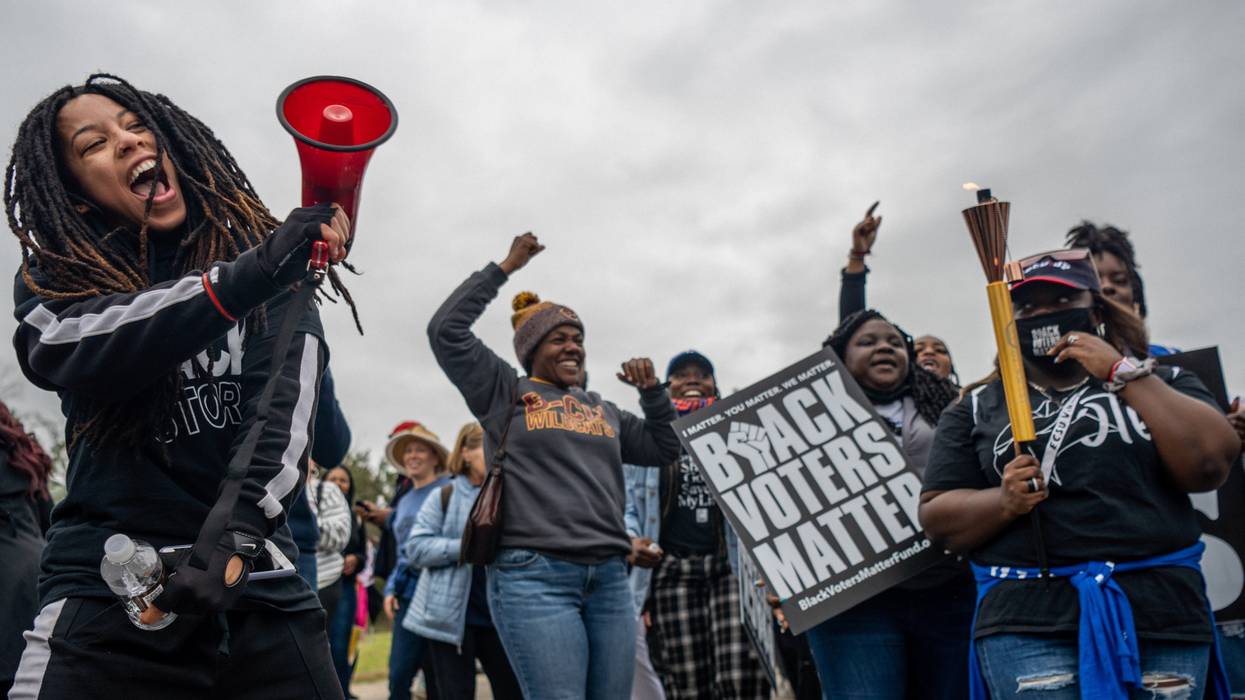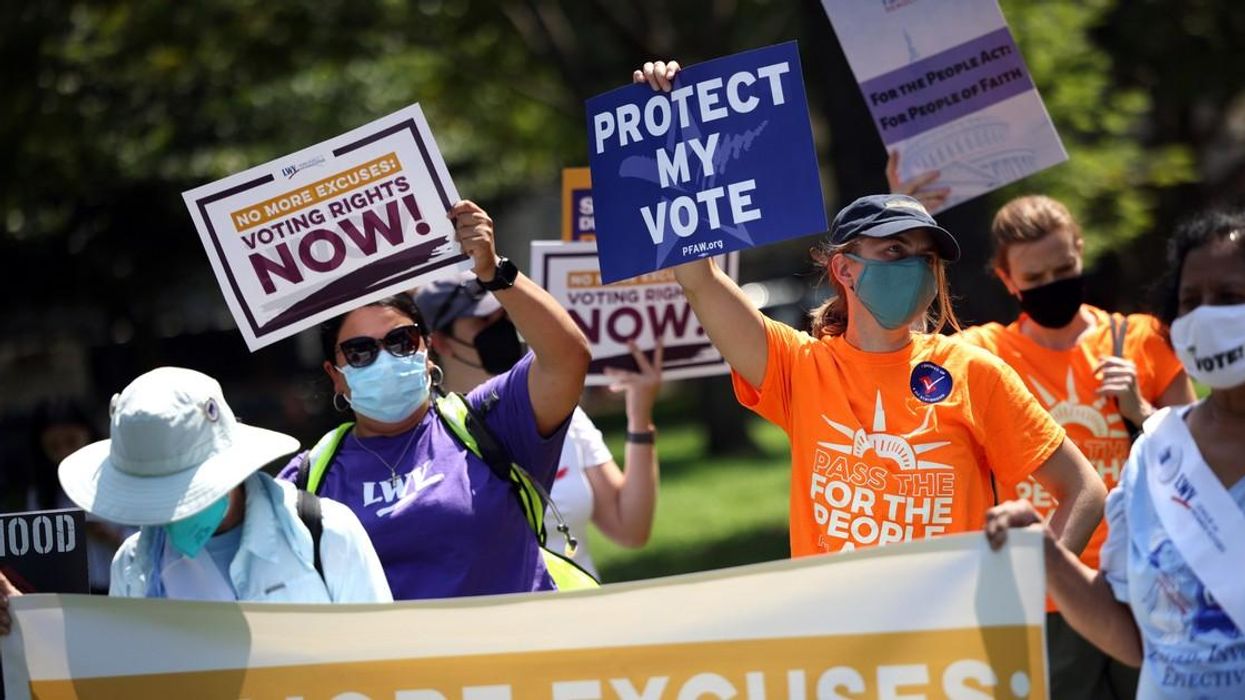In 'Victory for Voting Rights,' Federal Judges Adopt New Alabama Congressional Map
"Today's order means for the first time, Black voters in two congressional districts will have an opportunity to elect a candidate of their choice," said the head of the state's ACLU branch.
Following a U.S. Supreme Court ruling and Alabama Republicans' open defiance of a federal tribunal's order to reconfigure the state's racially gerrymandered congressional districts, a three-judge panel on Thursday adopted a new map that will be used in the 2024 elections.
Proponents hailed the ruling by U.S. Circuit Judge Stanley Marcus, District Judge Anna Manasco, and District Judge Terry Moore as a win for democracy. The move creates a second "opportunity district" where voters will have a fighting chance to elect a second Black member of Congress for the first time since Reconstruction.
"Today's order means for the first time, Black voters in two congressional districts will have an opportunity to elect a candidate of their choice," JaTaune Bosby Gilchrist, executive director of the ACLU of Alabama—which represented plaintiffs in the case—said in a statement.
"It is unfortunate that federal courts were forced to put in place a congressional map that state lawmakers refused to admit is the right thing to do, but we are thankful for their intervention," she added. "Our democracy is strongest when we make it possible for every vote to be counted. Putting in place fair voting maps moves us closer to that reality."
U.S. Rep. Terri Sewell (D-Ala.)
said: "While we celebrate this historic victory, the continued resistance that we face from state officials should not be lost on anyone. This long and arduous battle over Alabama's congressional map serves as a solemn reminder that efforts to deny fair representation to Black and minority voters are still alive and well."
Alabama state Sen. Merika Coleman (D-19) said that "today, we celebrate a victory for voting rights for all Alabamians."
"For two years, we have fought vigorously to end racial gerrymandering in Alabama and we are pleased with this landmark decision," she added. "Not only will this positively affect Alabama, but it will also help remedy the racial gerrymandering that is occurring throughout our nation. Fair maps ensure that no matter what your race, ethnicity, or political leaning, your vote counts."
While the new map does not include a second majority-Black district, it does create one in which 48.7% of voting-age residents are Black. The special master tasked with creating three map options asserted that the candidate preferred by a majority of Black voters has won 16 of the prior 17 elections in the district.
In 2022, a federal district court ordered Alabama's Republican-controlled legislature to draw a new congressional map after one approved by lawmakers and GOP Gov. Kay Ivey was found to dilute Black voting power because it contained just one majority African-American district. The court—which ruled that the GOP map violated Section 2 of the Voting Rights Act and the 14th Amendment—ordered the state to create two Black "opportunity districts."
The state appealed to the U.S. Supreme Court, which in June ruled 5-4 in Allen v. Milligan—with right-wing Justices John Roberts and Brett Kavanaugh joining their three liberal colleagues in the majority—to affirm the district court's ruling.
Following Allen v. Milligan, Ivey held a special legislative session to create a new map, which she approved in July, declaring that state lawmakers know "our people and our districts better than the federal courts or activist groups."
Despite the courts' rulings, Alabama Republicans' new map—the Livingston Congressional Plan 3—still did not contain a second majority Black district. The map's sponsor, state Sen. Steve Livingston (R-8), said then-U.S. House Speaker Kevin McCarthy (R-Calif.) told him that he was "interested in keeping my majority."
A federal tribunal consisting of two appointees of former President Donald Trump and one appointee of former President Ronald Reagan then blocked the new map, declaring that "we are deeply troubled that the state enacted a map that the state readily admits does not provide the remedy we said federal law requires."
Alabama then requested—and was denied—another Supreme Court intervention. A special master tasked by the district court subsequently submitted three new possible maps, or remedial plans, for consideration. Marcus, Manasco, and Moore selected Remedial Plan 3.
Similar challenges to GOP-draw, racially rigged congressional maps are playing out in
Georgia, Florida, and Louisiana.


